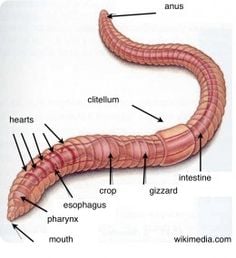Red Wiggler Worms - Effective Decomposers for Your Compost Container
Red Wiggler Worms - Effective Decomposers for Your Compost Container
Blog Article
Red Wiggler Worms Demystified: Opening the Keys of Vermiculture for Greener Living and Nutrient-Rich Dirt
In the realm of lasting methods for enhancing dirt top quality and advertising eco-conscious living, red wiggler worms play an essential yet usually ignored function. These humble creatures have the amazing capability to transform organic waste right into nutrient-rich castings that work as a powerful natural fertilizer. By delving into the globe of vermiculture, one can uncover a myriad of advantages that prolong far past typical composting methods. Comprehending the ins and outs of taking care of these worms, enhancing their environment, and utilizing their spreadings can lead to a greener way of life and healthier dirt for plants to thrive.
The Role of Red Wiggler Worms
Red Wiggler worms play an important duty in composting systems by effectively breaking down raw material into nutrient-rich spreadings. These starved eaters eat a range of organic products, such as cooking area scraps, yard waste, and paper items. As they feed, the worms' digestive processes damage down the organic issue right into a penalty, dark, and nutrient-dense product referred to as worm spreadings or vermicompost.
The castings created by Red Wiggler worms are very advantageous for dirt health and plant growth. They are rich in vital nutrients like phosphorus, nitrogen, and potassium, which are crucial for supporting healthy and balanced plant advancement. Furthermore, worm spreadings consist of advantageous germs and enzymes that aid enhance dirt structure, increase water retention, and enhance nutrient uptake by plants.
Benefits of Vermicomposting

Moreover, vermicompost, the nutrient-rich final product of vermicomposting, offers as a superb natural fertilizer and soil conditioner. It improves dirt framework, improves soil aeration, and increases dirt wetness retention. These residential properties add to healthier plants with more powerful origin systems and far better resistance to parasites and conditions. Vermicompost likewise improves the soil with vital nutrients like potassium, nitrogen, and phosphorus, promoting plant development and overall soil fertility.
Furthermore, vermicomposting assistances lasting gardening practices by supplying a chemical-free and natural choice to synthetic plant foods. Red Wiggler Worms. This eco-friendly technique not just improves the dirt however additionally aids decrease dependence on hazardous chemicals, advertising a greener and much more sustainable way of horticulture
Setting Up a Worm Bin
When developing a worm bin for vermicomposting, correct arrangement is critical to guarantee the success of the composting procedure. The first step in establishing up a worm container is picking an appropriate container.
After including the bed linens, introduce the red wiggler worms to the container. It is suggested to start with a small number of worms and progressively increase as they increase. The worms must then be provided with food scraps such as fruit and vegetable peels, coffee premises, and eggshells. It is necessary to prevent including meat, milk, oily, or salty foods to stop attracting insects and producing unpleasant smells.
On a regular basis keep an eye on the wetness degrees and temperature in the worm container to guarantee optimal problems for the worms. With proper arrangement and upkeep, the worm container will effectively transform organic waste into nutrient-rich garden compost for your plants and yard.
Gathering Worm Spreadings
To efficiently gather nutrient-rich worm spreadings from your vermicomposting system, a systematic harvesting technique is vital. When it comes time to collect the worm spreadings, there are a few crucial actions to follow to make sure a successful useful reference process.

Troubleshooting Common Issues
Determining and dealing with typical challenges that might arise during the vermicomposting process is essential for maintaining a healthy and balanced and productive worm bin. Adding excess food scraps can lead to a buildup of dampness and level of acidity in the worm container, potentially damaging the worms. An additional problem learn this here now is unpleasant smells emanating from the worm container.
Additionally, if the worm population is decreasing or the worms appear unhealthy, it might be because of ecological stress factors such as extreme temperatures or pH levels. Checking these factors and making required changes is vital for the wellness of the worms. By fixing these typical issues immediately, vermicomposters can ensure a successful and smooth vermicomposting process while keeping a flourishing worm populace.

Conclusion
To conclude, red wiggler worms play a critical duty in vermiculture by damaging down natural issue right into nutrient-rich soil. The benefits of vermiculture include greener living and improved soil top quality. Establishing a worm bin is crucial for successful vermiculture, and harvesting worm spreadings supplies useful garden compost for horticulture. By recognizing and troubleshooting typical problems, individuals can open the keys of vermiculture for sustainable living and much healthier useful link soil.
As they feed, the worms' digestive system procedures break down the organic matter right into a fine, dark, and nutrient-dense material recognized as worm spreadings or vermicompost.
The spreadings created by Red Wiggler worms are extremely advantageous for soil wellness and plant development. Including excess food scraps can lead to a buildup of moisture and acidity in the worm bin, potentially damaging the worms.In addition, if the worm population is decreasing or the worms show up unhealthy, it could be due to environmental stress factors such as extreme temperature levels or pH levels. Setting up a worm bin is vital for successful vermiculture, and collecting worm castings gives beneficial garden compost for horticulture.
Report this page